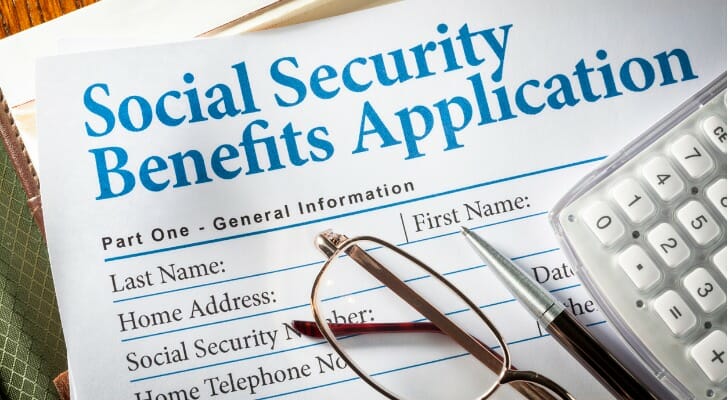Deciding how and especially when to claim Social Security benefits can be one of the most financially significant moves a person makes. Yet the rules used to calculate how much a beneficiary can receive from Social Security are complicated, making it difficult to calculate the optimal approach. A financial advisor with a designation as a registered social security analyst (RSSA) is trained to use specialized financial software to help with this important decision.
Overview of the Registered Social Security Analyst (RSSA) Certification
The RSSA designation is overseen by the National Association of Registered Social Security Analysts (NARSSA). NARSSA is a private for-profit company set up to provide an online education system for financial professionals to learn how to help others make the most of Social Security.
NARSSA began offering the RSSA certification in 2020. It markets the certification toward so-called encore professionals who are seeking second careers as well as financial professionals who in many cases have other credentials and see benefit in getting a special Social Security advisor certificate.
The problem RSSAs help clients with is mostly in timing the submission of an initial claim to start receiving benefits. The most popular age to claim Social Security benefits is as early as possible, starting at age 62. Waiting until age 70 can result in a more than 25% greater monthly benefit and this is what many financial advisors advise.
However, various factors including marital status, disability and ownership of a business can change the calculation. RSSA certificate holders are trained to use specialized Social Security optimization software that considers the relevant factors and generates a report with recommendations for individual clients.
Requirements Needed to Earn the RSSA Certification
The RSSA calls for minimal prerequisites. Applicants only need to obtain a preparer tax identification number (PTIN) from the Internal Revenue Service, which involves paying a small sum and submitting some documents. The IRS requires a PTIN for anyone who is paid to help someone else prepare all or part of a federal tax return. RSSA applicants who already have other credentials don’t need the PTIN. Acceptable credentials include certified public accountant, certified financial planner, attorney, enrolled agent, securities broker and insurance agent. All applicants have to join the NARSSA before applying for the RSSA certification.
Five self-study modules make up the educational requirements. The courses include lessons about the history of Social Security and how it is funded, spousal benefits, claiming strategies, taxation of benefits, Medicare and how to market and operate a Social Security advisor business.
The last module consists in learning about the optimization software. Students are taught now to gather and enter client information, conduct the analysis and generate and present a report advising the client on the best strategies, such as the best age to begin collecting benefits.
After completing each module, applicants have to pass a test on that module. There is also a final exam. The proctored exam is three hours long and includes the requirement to generate what-if scenarios for maximizing a client’s Social Security benefits.
The RSSA courses take 15 to 25 hours. The fee for accessing the educational curriculum is $1,500. The exam fee is another $350. RSSAs also have to maintain membership in the NARSSA. There are six levels:
- New Member: $199
- Individual Member: $459
- Group Member: $369 – $409
- International Member: $359
- Student Member: $99
- Retired Member: $99
In addition to ongoing membership fees, RSSAs have to complete four credits in continuing education. The continuing education courses are included in the annual membership.
The RSSA credential is an entry-level certification. It doesn’t entitle holders to any particular powers or privileges, beyond networking opportunities with other financial professionals who may give referrals.
Certifications Similar to RSSA
There aren’t as many certifications for specialists in advising people about Social Security as there are for more general financial counselors. However, a couple do exist:
National Social Security Advisor (NSSA) has been around since 2013, when it was created by the National Social Security Association, another for-profit private company. To get an NSSA certificate, advisors have to take a class costing from $495 to $1,095 depending on the kind of services and educational experience they want.
Certified Retirement Counselor (CRC) is offered by the International Foundation for Retirement Education. It’s been around since 1997 and requires only passing an exam. It costs approximately, $1,000 to buy study guides and take the exam.
Bottom Line
The RSSA is a certificate that shows the holder has gotten specialized training in helping people make the best decisions about claiming Social Security benefits. Much of the training is in how to use optimization software that employs information about the RSSA’s clients to generate what-if scenarios. On the other hand, if you prefer to do your own analysis of the best approach to claiming Social Security benefits, there are a number of free tools to help with the decision. They include online calculators from the Social Security Administration and the Consumer Financial Protection Bureau.
Tips on Retiring
- If you are approaching retirement age, you may want to consider working with a financial advisor to build a plan. Finding a qualified financial advisor doesn’t have to be hard. SmartAsset’s free tool matches you with up to three financial advisors who serve your area, and you can interview your advisor matches at no cost to decide which one is right for you. If you’re ready to find an advisor who can help you achieve your financial goals, get started now.
- The base line for gauging your readiness for Social Security should be knowing what you will be getting from Social Security. SmartAsset’s Social Security calculator can tell you what you have coming from the federal government.
Photo credit: ©iStock.com/FluxFactory, ©iStock.com/adamkaz, ©iStock.com/Bill Oxford


